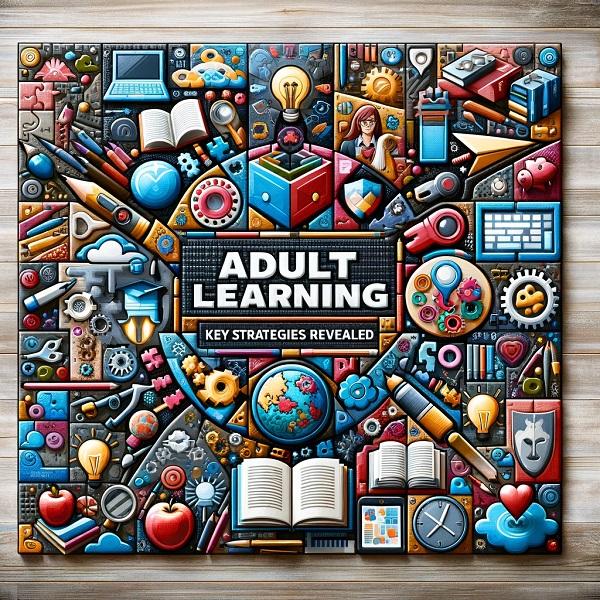Introduction
Adult learning is a dynamic process that requires specific strategies to ensure effective comprehension and retention of new information. In today’s fast-paced world, adult learners often have diverse backgrounds, experiences, and learning preferences, making it crucial for educators and trainers to understand and implement key strategies tailored to their needs. This article explores the importance of understanding adult learning strategies and provides comprehensive insights into incorporating these strategies into educational and training programs.
Understanding Adult Learning Strategies
Andragogy, the theory of adult learning, emphasizes the unique characteristics of adult learners, including their self-directedness, life experiences, and motivation to learn. Unlike traditional pedagogy, which focuses on teaching children, andragogy takes into account the distinct learning needs and preferences of adults. Adult learners are often motivated by practical, real-world applications of knowledge and seek learning experiences that are relevant to their personal and professional lives.
Key Strategies for Adult Learning
1. Provide a Flexible Learning Experience:
Adult learners come from diverse backgrounds and life stages, and they have different learning preferences and needs. Therefore, it is essential to offer flexible learning options, including varying the pace, method, and content of instruction. By accommodating different learning styles and experiences, educators can create an inclusive and supportive learning environment for adult learners.
2. Encourage Active Participation:
Engaging adult learners through active participation in the learning process is crucial for promoting deeper understanding and retention of new information. Interactive teaching methods, such as group discussions, case studies, and practical applications, allow adult learners to connect theory to real-life scenarios, enhancing their learning experience.
3. Emphasize Relevance and Practicality:
Adult learners are often driven by the practical application of knowledge in their personal and professional lives. Therefore, it is important to emphasize the relevance of the learning content and provide practical examples that illustrate how the new knowledge or skills can be applied in real-world situations. This approach enhances the motivation of adult learners and promotes a deeper understanding of the subject matter.
4. Support Self-Directed Learning:
Adult learners tend to be more self-directed in their learning journey, seeking autonomy and ownership of the learning process. Educators should provide opportunities for self-directed learning, allowing adult learners to explore topics of interest, set learning goals, and take responsibility for their learning outcomes. This approach fosters a sense of empowerment and autonomy among adult learners.
5. Create Engaging and Fun Learning Environments:
Incorporating elements of fun and engagement into adult learning environments can significantly enhance motivation and retention of new information. Humorous characters, interactive activities, and engaging teaching materials can create a positive and enjoyable learning experience for adult learners, contributing to their overall engagement and success in the learning process.
Implementing Adult Learning Strategies in Educational Programs
Educators, trainers, and instructional designers can integrate these key strategies into their teaching and training programs to create impactful learning experiences for adult learners. By understanding the unique characteristics of adult learners and implementing tailored strategies, educational institutions and organizations can effectively meet the diverse learning needs of adult students and employees.
Conclusion:
Understanding and implementing effective adult learning strategies is pivotal in creating engaging and impactful learning experiences for adult learners. By embracing flexibility, active participation, relevance, self-directedness, and engagement, educators and trainers can empower adult learners to achieve their learning goals and excel in their personal and professional endeavors. As the landscape of adult education continues to evolve, it is essential for educational professionals to prioritize the implementation of these key strategies to ensure the success and satisfaction of adult learners.










